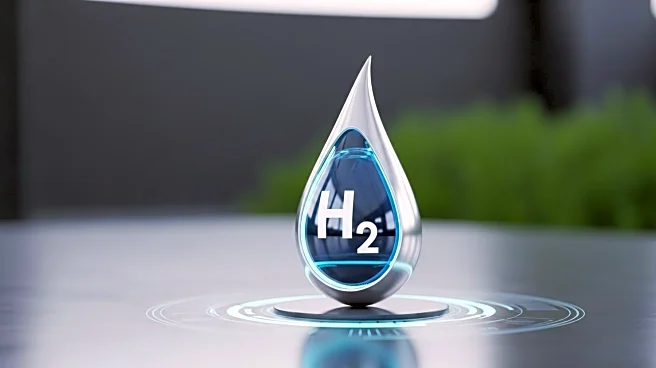What is the story about?
What's Happening?
BMW has announced plans to expand the series production of its X5 model to include five powertrain options by 2028, with the addition of a hydrogen fuel cell variant, the iX5 Hydrogen. This move is part of BMW's strategy to promote the development of hydrogen fuel ecosystems and refueling infrastructure. The iX5 Hydrogen will join gasoline, diesel, plug-in hybrid, and battery electric options, reflecting BMW's commitment to diversifying its powertrain offerings and supporting sustainable energy solutions.
Why It's Important?
BMW's decision to include a hydrogen fuel cell option in its lineup underscores the growing interest in alternative energy sources within the automotive industry. Hydrogen fuel cells offer a clean energy solution, producing only water vapor as a byproduct, which can significantly reduce emissions compared to traditional combustion engines. This development could accelerate the adoption of hydrogen technology, influencing industry standards and encouraging investment in hydrogen infrastructure. It positions BMW as a leader in sustainable automotive innovation, potentially attracting environmentally conscious consumers and influencing competitors to explore similar technologies.
What's Next?
BMW's announcement may prompt increased collaboration with energy providers and governments to develop hydrogen refueling stations and infrastructure. The company might also invest in research and development to enhance the efficiency and performance of hydrogen fuel cells. As the 2028 production date approaches, BMW could engage in marketing campaigns to educate consumers about the benefits of hydrogen vehicles, aiming to build demand and support for this emerging technology. The success of the iX5 Hydrogen could pave the way for further expansion of hydrogen-powered models across BMW's lineup.
Beyond the Headlines
The introduction of hydrogen fuel cell vehicles raises important questions about the future of energy in transportation. It highlights the need for comprehensive infrastructure development to support widespread adoption and the potential for hydrogen to play a significant role in reducing global carbon emissions. This shift may also influence regulatory policies, encouraging governments to incentivize clean energy solutions and invest in sustainable transportation initiatives. The cultural impact of embracing hydrogen technology could lead to increased public awareness and support for environmental sustainability in the automotive sector.
















